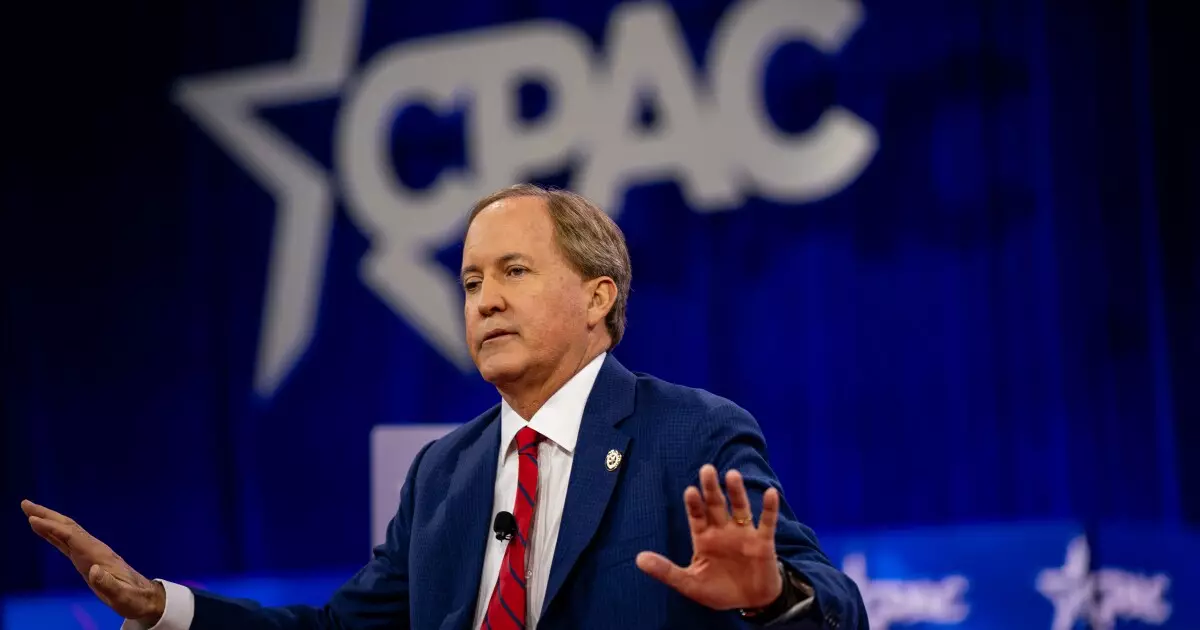In a notable shift in the dealings between Texas governmental authorities and financial institutions, Texas Attorney General Ken Paxton recently commended significant actions taken by major banks such as Bank of America, Morgan Stanley, and JP Morgan. These banks have hastily opted out of the Net-Zero Banking Alliance (NZBA), an initiative aiming to transition toward net-zero greenhouse gas emissions by 2050. Paxton has also declared that he will conclude reviews initiated in 2023 regarding these banks, reviews that had the potential to impose restrictions against underwriting municipal bonds in Texas. This development emerges from the contentious backdrop of Texas’ legislative landscape, particularly a law enacted in 2021 aimed at preventing the state from engaging in contracts with firms that are perceived to “boycott” the fossil fuel industry.
The move by these banks to withdraw from the NZBA was interpreted by Paxton as a pivotal step towards safeguarding the oil and gas sectors that are vital to Texas. Under the law in question, contracts exceeding $100,000 with companies that boycott these industries could have led to severe consequences for the banks involved. In October 2023, Paxton’s office publicly announced the review that included these banking giants, alongside others such as Wells Fargo and Barclays—highlighting a broader scrutiny of financial entities that might be viewed as hostile to key Texas industries.
Paxton’s statements reflect not just a victory lap for perceived moves toward energy independence but also a cautious pragmatism regarding financial implications. By exiting the NZBA, these banks potentially shield themselves from restrictions that would prevent them from engaging in contracts with Texas governmental entities. Paxton observed that the participation in the NZBA raised alarms regarding membership in anti-energy alliances, stating, “More and more financial institutions are taking a major step in the right direction by leaving the radical and anti-energy Net-Zero Banking Alliance.”
This environment intensifies the ongoing relationship banks have with public entities looking for underwriting capabilities. Following Wells Fargo’s exit from the NZBA, it was allowed to continue its municipal bond activities with the state—a clear signal of how compliance with state mandates can dictate the financial landscape.
Even as substantial banks like Bank of America and JP Morgan reassess their membership in NZBA, they remain under the scrutiny of ongoing reviews related to their stance on firearm industry relations. The Texas law necessitates a stringent review of whether these banks engage in practices that might discriminate against firearm entities. Hence, while they have retreated from the environmental alliance, they must still navigate the complex legal requirements of Senate Bill 19, which governs their contractual relationships with the state.
Indeed, the burden placed upon these institutions is evident. Leslie Brock, head of Paxton’s public finance division, has explicitly requested updates from remaining banks in the review about their relationship with the NZBA. This pressure illustrates how state leadership is wielding legislative authority to curtail partnerships with financial entities that might diverge from Texas’ deep-rooted interests, particularly in the energy and firearms sectors.
As these discussions crystallize, it’s crucial to recognize the pending legal challenges facing both the 2021 fossil fuel boycott law and the implications of the recent banking withdrawals. The constitutionality of this legislation is currently contested in court by a business group that is arguing against the interpretation and enforcement of such stringent regulations. This legal landscape introduces an additional layer of complexity as banks, state officials, and businesses navigate the terrain of compliance and legal accountability.
Both JP Morgan and Morgan Stanley, despite their exits from the NZBA, have reiterated their commitment to reducing emissions and advancing low-carbon technologies. This duality highlights the delicate balancing act required—while seeking to maintain operational integrity with state contracts, these institutions also strive to uphold a narrative of sustainability and environmental responsibility.
As Texas continues to redefine its relationships with the financial sector, the actions of these banks and the responses from Paxton’s office reveal a landscape rife with tension and negotiation, where energy politics heavily influence financial partnerships in the Lone Star State.

